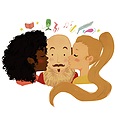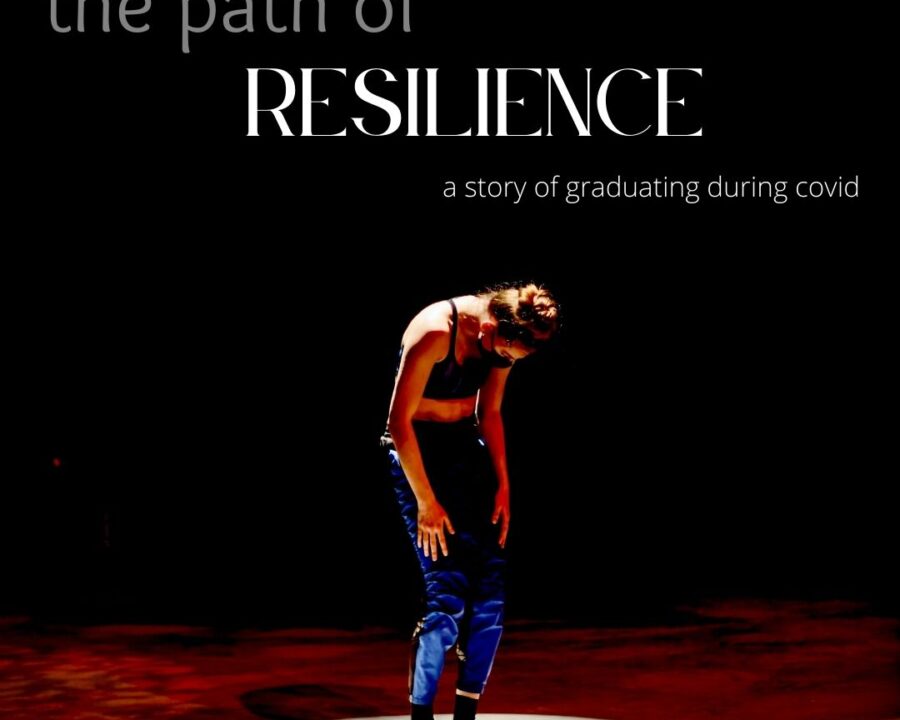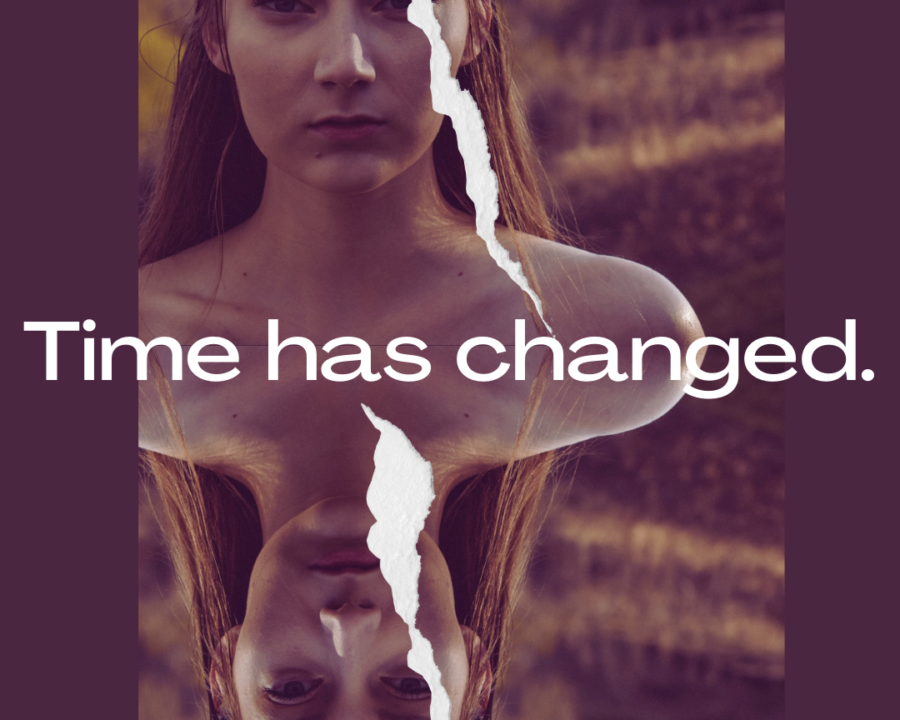
STORYTIME
July 22, 2020
TUESDAY’S TEA
July 28, 2020This week’s featured artists is a youthled and organized company called ReadyGo Theatre. They produce collaborative work driven by emerging artists in our local theatre community with a focus on socially-relevant topics. Erik Richards and Ryan Blair both artistic directors of the company spoke with us last week Thursday about varying topics like; is online theatre just film? And how it is like navigating different forms of story-telling. I hope you enjoy this conversation as much as we did!
Origin Story of ReadyGo

From Flaming peanuts to ReadyGo
Tell us about how your company came together?
Erik: Fringe summer of 2017, we did a show that I really wanted to do for a very long time. It was something that was supposed to be a button for my theatre career. I didn’t want to do anything else, really after the show. At that time, we were under the name of Flaming Peanuts Theatre because it was kind of a throwaway name for us. We did a show called Bash’d! A gay rap opera which was very successful at fringe and we had a good time with friends. Ryan was someone I knew from the bachelors of arts and education program at the university. Together we decided that we would change our name from Flaming Peanuts to like a real name, so we came with ReadyGo Theatre with a couple of other friends. And came with sort of a vision that has set up all the things that we have done ever since last summer we did a multiple shows during fringe one like monster and constellations under the same company.
Ryan: We are hoping to build ReadyGo theatre as a company that hopefully has an office and a rehearsal space. More of a collective arts umbrella which we would have member artists who can at any time come to the board or ReadyGo theatre at large and ask for help or recommendations or set pieces basically using the company’s resources to realize their own artistic ventures. Essentially, less of a company and more collective to support artists and the community as much as possible.
Fine line between Digital Theatre & Film

When does online theatre venture into a film? What is the line drawn between the two?
Erik: I think, first of all, the fact that you are working on a script that is designed to be put on stage inherently makes it different. Film scripts are often written, and staged scripts are written differently, I think the most significant difference to me is how you choose to present it either to edit it in a way that it looks like it has been filmed like almost you are recording a play. There is a fine line between whether its a film or theatre and whether or not you want to take the style of a play and apply it to your text.
Ryan: this was actually a considerable challenge of the first section of I, animal was trying to translate what exactly was theatre and what exactly was filmed. I kind of came to the same conclusion that using a theatrical text helps supports the idea that it would be a theatre adventure than a film. Still, I also feel that film has a very specific reliance on videography and the aspects of videography that come with filming like frame, panning, and cuts. I tried to bridge that gap with our theatre series by taking the lens out of the equation and taking a more natural approach using everyday objects. I think from approaching them that they are not just cameras, but a piece of the set, a piece of the character helps to bridge that gap.
Lauren: To you, making the camera a different character almost like another living being and because of that it’s more harmonious in the theatre aspect kind of view. I think once you start editing it then it is like well this is starting to drift into film. Because in film they had multiple chances, multiple ways to express themselves.
Ryan:That’s an interesting way of thinking about it. We kind of it approached it without even thinking about it and I guess technically they were able to shoot it as many times they wanted for I,Animal and submit the one they wanted.
Erik: We did have dress rehearsals days where Ryan went in and watched what their final draft would be. And then when they filmed on their own Ryan was not there for the filming, but he already saw what they were planning on doing and did their walkthroughs. So we did schedule it like it was a piece of theatre as well. I mean it is theatre!

What does it mean to apply the play in filming?
Ryan: What we ended up doing was we were less interested in the text as gospel and more interested in what drives the texts. Daniel MacIvor writes in this beautiful form on the difference between actors and their skill levels. He uses the allegory of two actors in kabuki theatre, one of which is favoured by the director but not so much the public and the other is hugely revered by the public eye. And the director is one day cornered about it and asked who he thinks is better and he was like ” this guy is fine, but when he looks at the moon I see him look at the moon, and this other guy when he looks at the moon I see the moon”. I was really intrigued by that concept, so we tried to take the text as it was and give it to the actors and have them do what they want with it. Try to keep in mind of discovering self-identity and being vulnerable in the public space all these really fun themes that come out of the show as it stands on its own. And try to find the story in the text that you want to tell the audience. That was more of our way to interpret the play then the text.
Erik: I think it was a blessing in disguise that we ended up doing it this way as opposed to on stage, I think if we hadn’t done a digital medium, we wouldn’t have asked the actors to make cuts of the text which I think is one of the most exciting parts about the piece. Because we were putting it up online and having it lived streamed, we didn’t want to make it too long and intense for the watchers and be creative with the medium used.
What was it like directing digitally?
Ryan: we never met up with any of the actors in person, so it was all through zoom meetings and google meets. I almost hesitate to use the term director because it is not the form of directing that I am used to. It was more like I gave the initial direction, and I would check in with them. I would ask if they had any questions regarding the show, tech, etc.. reading through their drafts and give them notes, for the most part, we did walkthroughs, and I would give notes on framing and transitioning. It was quite a challenge then what I would assume directing would shape itself.

Is digital theatre the direction you want to take further?
Erik: We were kind of forced into this digital theatre world, and I actually enjoy it more and honestly think that in-person rehearsing is the most significant thing everyone is missing. There is definitely a space for online content or even digital content in a live theatre show. Something that I would be a lot more confident about having done it already with I,Animal: as far as the directing style, we are both collaborative on the project coming from a non-formal theatre background, I think the best way is to learn from skills that are in the room. A lot of collaboration in rehearsal space and outside of it as well.
Ryan: Our first project was all pre-recorded, and it kind of had to be because of quarantine. For our next project, we are doing a much more ambitious work by having a live-streamed walk through the city space, which we are really excited about.We would have never thought of playing with the digital theatre before we were forced to. It has definitely opened up a lot of fascinating opportunities and ways to deliver content.
Erik: We ask ourselves; How do we advertise to a population of people quarantined who probably haven’t seen a live show in a really long time? And make sure that they feel safe and comfortable, there are many things that we never had to take on before, and that is going to come with this new project. We are working towards it and see how we can do a live show during a pandemic?
Advice to Emerging Artists

Erik: The thing I learned the most is that don’t be afraid to ask for help or advice. People in this community are so open and excited to share their art and careers. If you have something, you really want to do just ask people for help cause everybody is excited to see one another succeed.
Ryan: Don’t wait until its perfect. If you got an idea and are excited about it, just start working on it. Talk to your friends and people you know and get it going.
Message from ReadyGo: If you, the theatre community at large, have any projects that your not sure how to realize, reach out to us at [email protected]. We would be very excited to support you in any way we can.
You can also follow them through their social medias to stay in touch with their upcoming projects!
Again a big shout out to ReadyGo Theatre for sharing with us and if you have a story you want to share we would love to hear it!




